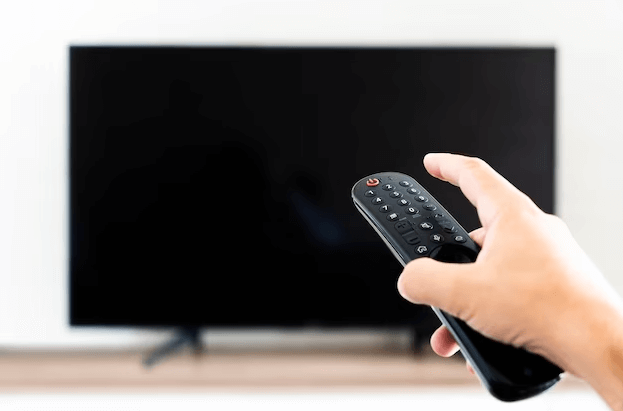ANALYSIS | As ITV continues talks with Sky’s owner Comcast continues talks over the sale of its free-to-air channels, Sky could soon become the ultimate controller of the UK’s biggest free-to-air commercial broadcaster and a key stakeholder in Freeview, Freesat and Freely.
- Sky has viewed the expansion of free-to-air TV as a threat.
- It once planned to use Freeview spectrum for its own pay TV service.
- Sky was supportive of alternative uses for the terrestrial TV frequency band.
With a purchase of ITV’s linear TV business comes a shareholding in Everyone TV, the company that manages free-to-air TV platforms including Freeview, Freely and Freesat.
Sources close to the negotiations believe taking ITV’s services behind a paywall is not part of the plan.
However, Sky has a track record lasting nearly a quarter of a century of undermining free-to-air TV in the UK, notably Freeview as the dominant free TV platform over that time. With ITV under its control, and the BBC’s future uncertain, Sky could finally manage to achieve the previously unthinkable.
Sky lures channels behind the paywall
When Freeview launched in 2002, it promised a rich mix of top-tier TV channels. But behind the scenes, deals unravelled. Turner Broadcasting’s TCM and Boomerang were expected to join, but negotiations with multiplex operator Crown Castle collapsed. Sky swooped in, securing Turner’s channels -except CNN – for its pay TV lineup.
In its infancy, Freeview was flooded with watered-down versions of pay TV content. UK Bright Ideas offered lifestyle snippets from UKTV, while Viacom’s TMF served up music and kids’ shows without using flagship brands like MTV or Nickelodeon. The platform lacked premium appeal, but its growing user base in the mid-2000s began to shift broadcaster strategy.
Channel 4 brought E4 and Film4 to Freeview. ITV exited its Sky joint venture, replacing Granada Plus with ITV3 on satellite and launching Men & Motors on Freeview. UKTV followed suit, gradually migrating more services to free-to-air during both the late 2000s and 2010s.
CNN briefly appeared on Freeview in 2008–09, but TCM remained paywalled until its closure in 2023.
Sky Sports News: Too Popular for Freeview
Sky Sports News, one of three Sky channels on Freeview, became a hit thanks to its transfer deadline coverage and Soccer Saturdays. But when BT began leveraging Freeview for its first generation TV boxes, Sky pulled the plug—moving the channel behind a paywall.
The Picnic Proposal that threatened to reduce Freeview choice
In 2007, Sky pitched a new pay TV service called Picnic, aiming to replace its Freeview channels with MPEG-4 streams of Sky Sports 1, Sky 1 and others. Viewers would need new receivers and pay a monthly fee. Ofcom’s delayed response led Sky to abandon the plan in 2008.
Ironically, while MPEG-4 was once a regulatory hurdle, its adoption later became routine—like the mostly unnoticed switch of That’s TV 3.
HD Channels: Still behind a Paywall
As HD spectrum opened up in the 2010s, Sky offered incentives to keep HD channels encrypted.
While SD channels like TruTV and Quest Red launched as free-to-air channels from the beginning and existing SD channels including PBS America began to emerge from the paywall, HD versions of Freeview channels including ITV2 and Film4 stayed locked away. In the end, Channel 4 could only offer Channel 4+1 HD and 4seven HD on Freeview, which hardly incentivised viewers to switch to HD.
By the early 2020s, HD spectrum was reclaimed for mobile services, leaving just one Freeview HD multiplex. With Freeview HD expansion stalled, Sky stopped pushing for HD encryption. ITV made the calculation in 2022 that it was worth the expense to rejig its satellite capacity and take its offshoots like ITV3 HD free-to-air on satellite. Meanwhile Channel 4 and 5 shifted HD efforts to online platforms like Freely, leapfrogging Freeview and not bothering expanding satellite HD availability – sensing a shift to online viewing.
Sky objected to digital terrestrial TV expansion
In the early 2010s, as Ofcom was drawing up plans to free spectrum on a temporary basis for HD channels, Sky is on record of accusing the regulator of being “overly protective” of Digital Terrestrial TV.
It jumped on the bandwagon of using spare terrestrial TV bandwidth for White Space Devices, it urged Ofcom to prioritise spectrum for that purpose. It never took off. The White Space Device framework was withdrawn by Ofcom in 2024.
Freeview as a Sky promotional tool
Sky’s Freeview presence – initially limited to three channels following regulatory intervention in the 2000s – was always a marketing tool. Viewers of Sky News, Sky Sports News, and Sky Travel received constant promotions for Sky’s satellite service, including interactive features unavailable on Freeview.
Sky Travel morphed into Sky Three, then Pick and Sky Mix—all continuing the tradition of showcasing Sky’s premium offerings. Pick even aired a weekly “Sky Thursday” to spotlight subscription content.
The future
As television consumption shifts increasingly toward streaming, the UK still lacks a unified standard for internet-based TV. While other countries eye up IP-streaming services using open DVB-I specifications, providers here are currently free to implement their own streaming solutions as they see fit. This fragmented approach means viewers need different receivers to access each company’s proprietary IP-streaming service.
In the early days of satellite television, Sky leveraged its market dominance to shape standards and dictate how satellite channels were launched and configured – creating a system unique to the UK and Ireland. A similar dynamic could emerge in the realm of IPTV. That’s partly why the UK’s leading public service broadcasters have developed Freely, a proprietary platform aimed at securing a competitive edge. With Sky now bidding for ITV’s channels, it holds the power to challenge and potentially undermine Freeview’s successor.
By: Marc Thornham

